Reviews
King Vidor
USA, 1928
Credits
Review by Thomas Scalzo
Posted on 11 February 2009
Source TCM Broadcast
Categories The Silence After Sound: Hollywood’s Last Silent Movies
“We do not know how big the crowd is, and what opposition it is… until we get out of step with it.”
Meet Johnny Sims: a small-town boy with high hopes of making it in the big city. Although Johnny doesn’t have much by way of practical experience, he’s sure that his winning attitude and tireless dedication to a task will ensure a rapid rise to the top of the corporate world. After all, he’s got what it takes to be somebody big; that’s what his father always said. And so, with dreams of spending his working days behind a fancy desk making important decisions swimming in his head, Johnny enthusiastically joins the crowd and heads off to his first day of work.
Initially, it seems as if The Crowd will be the inspiring tale of a unique young man struggling against the crushing conformity of the masses. Johnny seems a likeable enough guy, always sporting a smile and a kind word, and we can’t help but wish him success. On one of his first days of work, for example, as he shoves his way into an elevator car, it is with admiration that we watch Johnny naively turn his back to the elevator doors in order to carry on a conversation with his friend. Perhaps Johnny truly is different: a man capable of marching to the beat of his own drummer, of standing out from the torpid multitude.
Unfortunately, when the folks in the elevator inevitably rise up and demand that Johnny face front like everyone else, he capitulates. Although he’s a bit confused by the request, it is clear that Johnny is afraid to make waves in this unfamiliar environment. On one level, the scene can be viewed as pure comedy, a set piece construed to elicit laughs at the expense of Johnny’s innocence. After all, at this early juncture of the tale we haven’t yet determined the type of film - comedy or drama - that we’re in for. Looking back on the elevator scene, however, we realize it is not a funny moment in a fish-out-of-water story. Instead it is a sobering portent of Johnny’s fateful loss of spirit under the weight of the crowd’s insufferable presence.
When we first witness Johnny at his workstation, we’re treated to another powerful example of Johnny’s descent into anonymity—and one of the most striking and telling visuals of the film. Instead of the big office of his deluded dreams, Johnny is the man at desk 137. No walls, no shelves, no privacy, just a desk and a chair in the middle of a room. In fact, Johnny’s workplace insignificance is stressed even before the camera offers us a close-up of Johnny at his desk. As the scene opens, we’re offered a sublime wide shot of the room, revealing row upon row of identical desks with identical workers performing identical tasks. Johnny is nothing more than an insignificant and indistinguishable blob.
At first, Johnny holds up under such humbling conditions surprisingly well. He works hard, saves his money, and avoids the myriad temptations of the big city. Hope remains that Johnny will find a way to rise above his situation and prove to the world that he is more than just the man at desk 137. Inevitably, however, a friend convinces Johnny that life without an indulgence now and then is simply not worth living. Why not find a couple of girls and have some fun? And so we witness Johnny unwittingly falling into another predictable routine. In yet another memorable and telling scene, Johnny and his buddy file out of work at the end of the day, marching with the crowd to a nearby office building. Once there, we watch as girl after girl exits the building, meets up with her man, and marches off screen. The procedure is that of a well-oiled machine, each united couple merely another processed unit on an assembly line.
Much like our reaction to Johnny’s uninspiring employment situation, we’re saddened that Johnny’s love life is also falling prey to predictability. In a film so obviously centered on the depressing lack of individuality in the modern city, we can’t help but seek out a spark of originality on which to pin our hopes for humanity. Thus, despite the increasingly oppressive circumstances, we still hold out hope that Johnny will find a way to impress his colorful personality on the plain world. As the saga of Johnny rolls along, however, we realize with a shock that a simple tale of creative man versus cruel city is not the story director King Vidor intends to tell.
The first indicator of the film’s true narrative direction comes when Johnny and his girl take a ride through the city atop a double-decker bus. Spotting a man dressed in a clown suit, wearing a sandwich board, and juggling to attract attention, Johnny mocks him, attempting to bolster his own significance by belittling the worth of another man. “The poor sap!” Johnny exclaims on the intertitle card. “And I bet his father thought he would be President!” Though the incident is quickly passed over, and supplanted by several blissfully happy scenes of Johnny getting married, honeymooning in Niagara Falls, and settling into an apartment with his wife Mary, the seeds of Johnny’s true character have been sewn.
Later on, we witness not only Johnny’s insensitivity, but also his inability to cope with difficult circumstances. It is Christmas Eve, and Mary’s mother and brothers - who do not like or respect Johnny - are coming over for dinner. After making a few half-hearted efforts to impress, Johnny gives up, slips out of the apartment, and gets drunk with another girl. Further examples of Johnny’s immaturity abound, ranging from blaming his wife for his lack of worldly success, to constantly claiming he is going to change his ways and become a real man—even when Johnny finds himself with two small children to support, he doesn’t make any true effort to improve his lot in life, instead pinning all his hopes on his ability to craft catchy advertising slogans. After awhile, despite our early sympathy for the man, it’s impossible to deny the truth: Johnny Sims is a jerk.
Suddenly we are in the midst of a film without a hero. Instead of a catalyst to Johnny’s creativity, the crowd has served as an alembic, distilling and revealing the selfish and petty nature of an unremarkable man. We realize that Johnny will never successfully stand out from the faceless masses, that his only chance of a peaceful life lies in giving up his childish dreams of becoming an important man, admitting his irrelevance, and settling in to a predictable and ordinary existence. That King Vidor’s film continues to affect us over eighty years after it’s initial release lies in this extraordinary decision to tell the story of a man who does not, and arguably cannot, live up to his dreams; a man incapable of being anything more than an anonymous member of society. In other words, The Crowd dares to tell the true story of the everyman. And therein lies the enduring relevance and power of The Crowd—a film that eschews naive, frivolous escapism and offers up timeless, sobering truth.
More The Silence After Sound: Hollywood’s Last Silent Movies
-
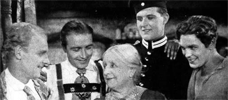
Four Sons
1928 -
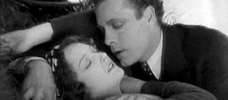
The Crowd
1928 -
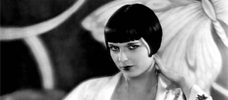
A Girl in Every Port
1928 -
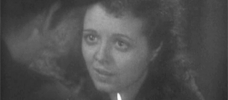
Street Angel
1928 -

The Patsy
1928 -
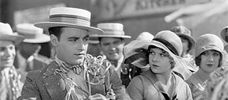
Lonesome
1928 -

Our Dancing Daughters
1928 -
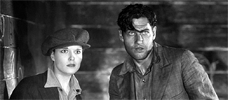
Beggars of Life
1928 -
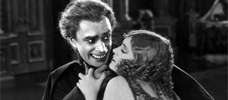
The Man Who Laughs
1928 -

The Docks of New York
1928 -
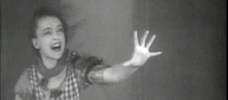
The Wind
1928 -
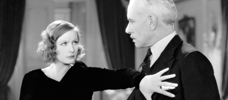
A Woman of Affairs
1928 -
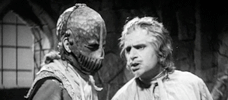
Iron Mask
1929 -
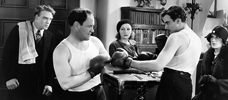
The Single Standard
1929 -

City Girl
1930 -
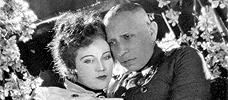
The Wedding March
1928
We don’t do comments anymore, but you may contact us here or find us on Twitter or Facebook.



